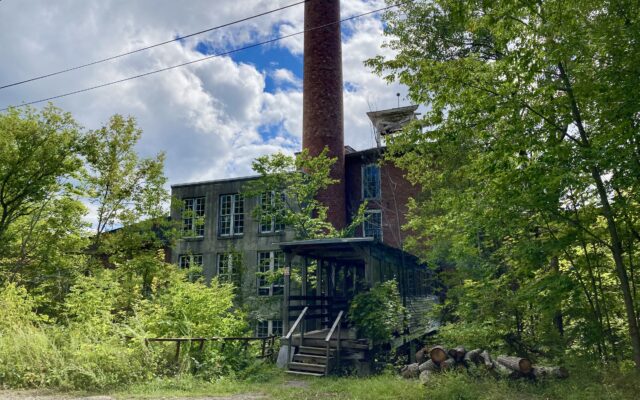
Group wants to bring a hotel to Piscataquis County
DOVER-FOXCROFT — With two active sports facilities in Dover-Foxcroft, the town could use a hotel. That’s why a group of Piscataquis County residents and leaders are using federal funds to identify a location and figure out what it would take to build one in the southern part of the county.
The Piscataquis County Economic Development Council received a $500,000 Brownfields Assessment grant from the United States Environmental Protection Agency last May. It’s using the money on four projects and asking towns, nonprofits and others to submit more ideas.
The money is designed to clean up properties where redevelopment is complicated by hazardous substances, pollutants or contaminants — called brownfields sites — and have communities reinvest in them. It increases local tax bases, leads to job growth, takes development pressure off of undeveloped, open land and protects the environment, according to the EPA.
Piscataquis County’s economic group, known as PCEDC, can use $18,000 of those funds on a feasibility study for a hotel because three of the five Dover-Foxcroft locations being considered are brownfields sites, Executive Director Angela Arno said. The grant allows market studies and future site planning, she said.
A group of area residents has met intermittently for at least five years to discuss building a hotel in or near Dover-Foxcroft, said Richard Swett, one of several people involved in the project who has ties to Foxcroft Academy, although the school is not involved. This step forward provides a glimpse into what Piscataquis County’s future could be. Advocates say it could also bring a boost to the local economy.
The town’s two newer sports facilities, the Piscatquis County Ice Arena and the Jim Robinson Field House, receive requests to host tournaments, but they’re limited because there isn’t a place with enough rooms to host teams and families, Arno said.
“With a hotel in the region, families are going to eat, shop and get gas locally,†she said. “We’re looking at this as a complete economic development project.â€
A hotel would also offer Mainers and out-of-state visitors who come to access snowmobile and ATV trails, among other recreational activities, a place to stay besides Greenville, Arno said. And it would offer the parents of international students attending Foxcroft Academy a place to stay if they choose to visit.
Some residents have expressed interest in a spacious venue for conferences and events such as weddings and showers, she noted.
While Dover-Foxcroft has some accommodations, including The Mill Inn and the Bear’s Den Restaurant, Motel & Tavern, it doesn’t have a hotel with a large number of rooms.
Pinnacle Advisory Group, which has an office in Boston, Massachusetts, is leading the feasibility study. Those involved with the project wanted an organization with a fresh perspective to look at the project and provide feedback on what would be feasible, Arno said.
She expects the study to complete in June. The PCEDC will then release it to the public and the residents group behind the project. They can use it as an asset and work with investors or prospective hoteliers, and the PCEDC would be supportive, she said.
“Everybody kind of has the sense that this would be a good thing, but we need to back it with some data and information,†said Peter Sherr of TRC Companies, Inc., an environmental consultant, in a recent meeting about the brownfields funding.
The PCEDC can use its grant on Phase I and II environmental assessments, which help communities understand how a site was used and potential threats to people and the environment, and cleanup planning.
To begin actual cleanup, the group would need to tap into its Brownfields Revolving Loan Fund for grants to nonprofits and municipalities or low-interest loans to for-profit companies, Arno said.
The group was awarded $1.5 million in the revolving loan fund in 2012 and has about $600,000 remaining, she said.
The $500,000 assessment grant is being used on three other projects, including the Brown Mills building in Dover-Foxcroft, where an assessment was done in 2016 and will be updated.
The former woolen mill and tannery is for sale, and some county and state officials want to see it redeveloped to tackle Maine’s lack of affordable housing. This grant helps with planning the building’s future use, which could include mixed-use spaces like other revamped mills around the state, including one in downtown Dover-Foxcroft.
Brownfields funding was used to cover the environmental cleanup at Mayo Mill, which is now apartments, office space, a boutique inn and cafe.
The funding will also address the Abol Bridge Campground in an unorganized territory in Piscataquis County. The project is to remove an expired fuel tank, Arno said.
An environmental assessment was completed at the redemption center in Dover-Foxcroft, which is being reviewed by the EPA and Maine Department of Environmental Protection.
There is more funding available, and the PCEDC is eager to spend it, Arno said. The group received a $200,000 assessment grant that it used at eight brownfields sites from 2009 to 2011. Another $400,000 became available in 2016 and was used to assess 11 sites.
The PCEDC has encouraged entities to apply on its website to access the funding. Requests have come in for projects in Greenville, Guilford and Milo.